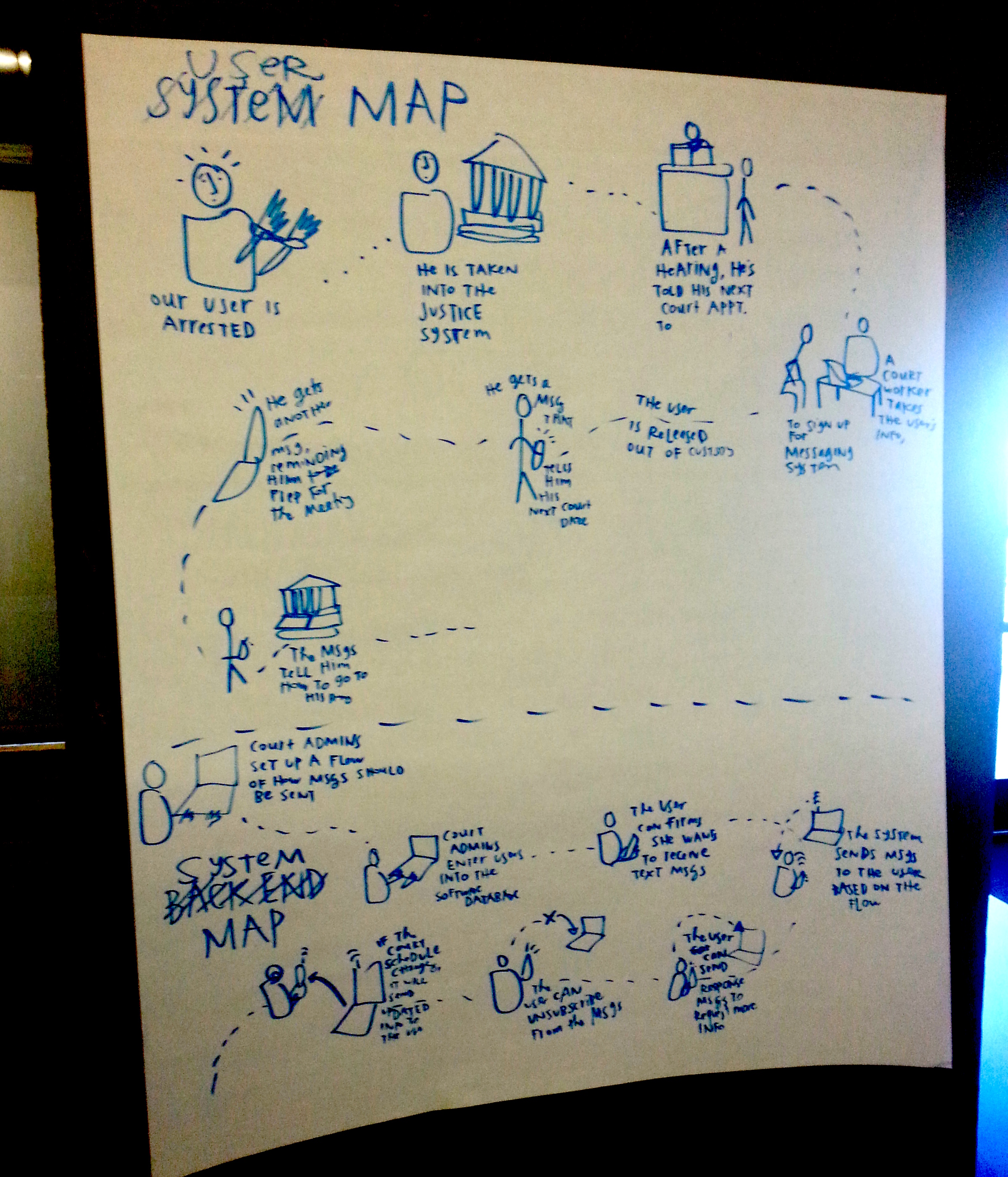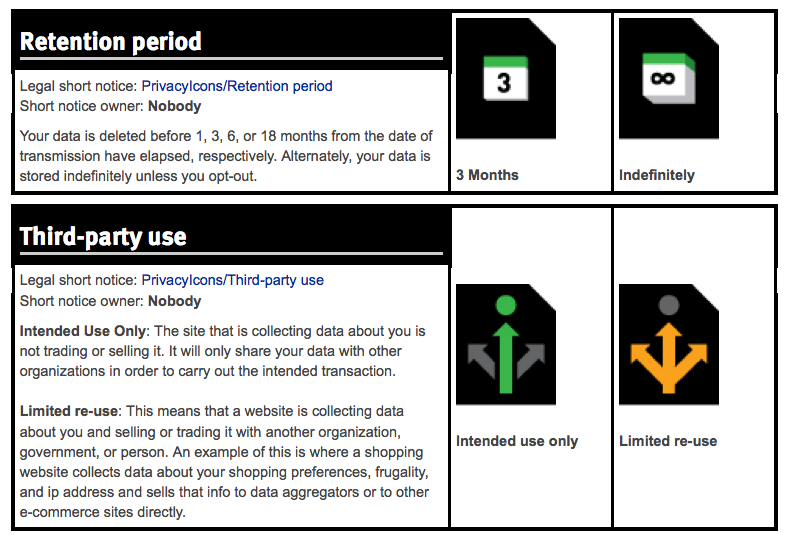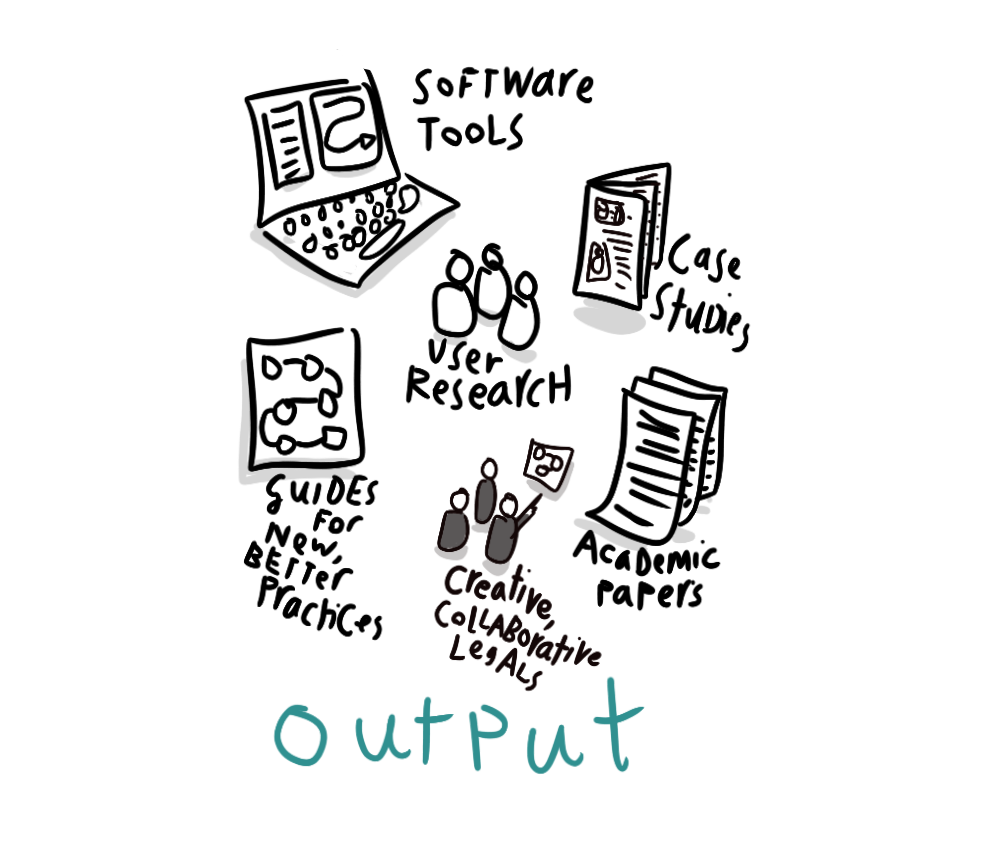This past Saturday, I participated in the Social Good Hackathon at Mozilla in SF, as part of the Tech for Social Good week. I went with a mission: to find people to work with me in advancing the Court Messaging Project.
 The Project
The Project
This project has been slowly taking shape over the past months, as Briane Cornish, James Williams & I have been speaking with California state courts about the possibility of building open-source SMS messaging systems, that would allow the courts to send reminder & informative texts to litigants with upcoming court dates.
We have been looking for pro bono volunteer help — to help us customize some of the open source automated-SMS-messaging systems that we’ve been able to find & think have promise. The Social Good Hackathon was the perfect place to start reaching out to programmers & designers who are interested in working for social justice & want to create open-source tools that can be shared by lots of public service organizations.
Our Hackathon Work
At the start of the hackathon, I gave a 2-minute pitch about what the project is, what our court partners care about, and what kind of a difference it can make in people’s lives if they happen to end up in the court system. After the pitches, the attendees could choose which challenge they wanted to work on — the pitched challenges included everything from making Facebook more civil, to improving how we speak about sensitive issues, to increasing access to affordable art, to helping people donate things more easily.
I found an excellent (and all female!) group of designers, programmers, and lawyers who wanted to work on the Court Messaging Project, and we spent the day working on both front end & back end parts of the project. We only had eight hours, and so I tried to set realistic goals of what kind of useful work product we could create. The goal wasn’t to build the entire perfect solution in one day — collaborating with the courts’ IT teams & preferences is too important, and they weren’t there to work with.
Rather, the hackathon was very useful in creating intermediate work product that will let us do more testing, better research, and create a design/development plan that is thoughtful, centered around user needs, and setting the groundwork for a successful long-term project. One half of us (as lawyers & designers) worked on design research/planning, and the other half worked on building a working prototype.
Our Work Product from the Hackathon
Unlike typical hackathons, this one wasn’t aimed at winning tech goodies, cash or investment. Rather it was to advance social good projects, share insights & tools with the audience, and make connections that could help you improve your design and strategy. I found this type of hackathon much more productive and useful, because it wasn’t about creating a short-term kind of pitch, with lots of inflated statistics and over-optimistic plans of success. Rather, it was useful to create work product to drive forward a project that will take much longer than a day to design well. It was about momentum, planning, and connections.
By the end of the day, we had created
- A Process Map of the litigants’ journey through the court system
- An intake strategy, of when to onboard the litigant (and her family/guardians/support system) into the messaging system, and how to gain her trust & long-term engagement
- A communication strategy of what kind of information to send to the litigant, and when
- A working prototype for how the Court Admins would intake users into the messaging system’s database
- A better assessment of the open-source SMS system Rapid Pro, that we are thinking of forking and using as our automated message-sender
But the real outcome of the day was meeting wonderful people who are interested in building new, thoughtful, user-centered tools to improve social justice & advance social change. The women I worked with at the hackathon had so many fresh ideas for the project, that I had never thought of (and that I will be writing up in short order). And they have connections to other groups that could offer more pro bono development help. I’d like to send my thanks to my team for all their hard work at the hackathon!
Connect with us about the Court Messaging Project
If you’re interested in learning more about the Court Messaging Project, come visit our project site here. And if you have ideas or would like to volunteer to help develop this open-source tool for use in courts, please be in touch! We are looking for developers with skills in Python, jQuery, and Android programming to help us customize the Rapid Pro code base to be an automated message-system that fits the courts’ needs.


